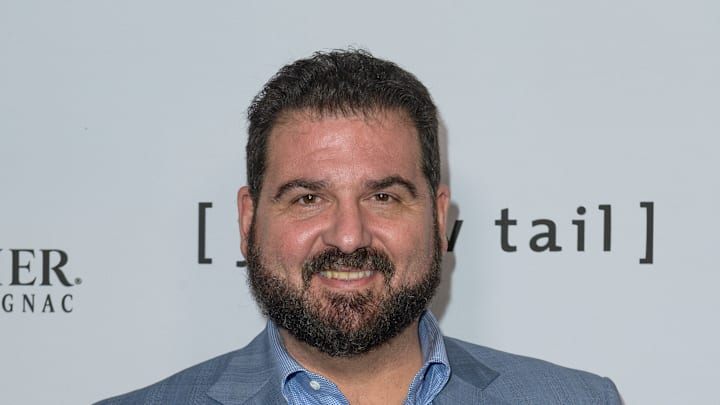Host of the sports talk show, The Dan Le Batard Show with Stugotz, Dan Le Batard has been associated with the Miami Heat since the franchise's inception in 1988. He reported on the team for the Miami Herald during the pivotal moment when Micky Arison acquired the team, and was present when Arison appointed Pat Riley as head coach in 1995.
He observed the evolution of the Heat Culture under Riley's leadership, which transformed the organization into one of the most successful in NBA history. Additionally, Le Batard witnessed the construction of the Miami Heat Practice Facility, located next to the Kaseya Center. While Miami is referred to as the place where players are developed and champions are forged, Le Batard offered a different perspective on a recent episode of the OGs Show podcast with former Heat champions Udonis Haslem and Mike Miller.
Some individuals perceive the profession of players as an enviable occupation, where they can earn substantial sums of money through play. However, it is essential to recognize that no profession is devoid of rigorous effort. Le Batard cited the Heat as an example, commending Arison and Riley for their methodical approach in constructing the team. Their journey from modest origins to becoming a formidable presence in the league was made possible by the steadfast dedication of the entire organization.
Le Batard further elaborated on the organization's rigorous culture of discipline, comparing it to a 'military complex for millionaires.' He emphasized the sacrifices and the level of discipline that players must exhibit to thrive in such an environment. Additionally, he pointed out the significant physical demands placed on the players, highlighting the pain and effort necessary to maintain peak fitness levels.
"Your building is amazing to me okay I think it’s like a military complex for millionaires," said Le Batard during his recent appearance on The OGs podcast. "It’s like a military school. It feels part science lab, humans as test pigeon for how far can we push the human body on pain and excellence."
Miami's strict approach to training
The concept of "Heat Culture" has gained significant attention in recent years. Essentially, it represents the lifestyle that Pat Riley has fostered and nurtured within the organization, contributing to its status as one of the most successful franchises in NBA history.
Miami's organization is rooted in discipline, with Riley recognized as one of the premier disciplinarians among coaches in the league. Given Riley's rigorous training methods, it is understandable that sports commentators like Le Batard have compared the Heat's facility to a military base, with players undergoing training similar to that of recruits under a drill sergeant.
"You guys were in a military environment where you had to be more disciplined than other people from Serbia and the inner cities competing for money. You had to be more disciplined than them, better shape, tougher than them," Le Batard added.
Being a part of the Miami Heat organization isn't for everyone
There appears to be a location that is even less favorable for the Heat players than the team's practice facility. Last year, Haslem and Miller discussed the playpen, situated within Miami's complex. Haslem indicated that this was the designated area for players on the Heat roster who were unable to practice with the team due to injuries or recovery. However, the playpen did not live up to its name, as UD noted that injured players would prefer to rejoin their teammates rather than spend time there.
"You would rather practice hurt than go into the playpen in Miami. There's a bike over there, weights over there, and medicine balls over there. By the time you're done, you have completely, mentally, physically, and emotionally pushed yourself to the limit," Haslem said.
Playing in Miami proved to be a fulfilling experience for both Haslem and Miller. Haslem secured three championships as a long-standing member of the Heat, while Miller achieved back-to-back titles as a key contributor later in his NBA career.
Nonetheless, both acknowledge that being part of the Miami Heat organization isn't suited for everyone. As someone who has been closely associated with his hometown team since the beginning, Le Batard undoubtedly agreed.
